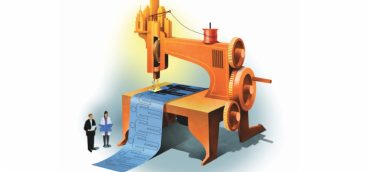Money for merit
Armen Arevian hunched over his laptop in the Shadyside Starbucks. A joint Ph.D./M.D. neuroscience student at Pitt and Carnegie Mellon, he studies the sense of smell and nerve pathways by which the brain processes information.
“We’re trying to understand how we know it’s a rose,” Armen said. “In my work we listen in on neurons’ conversation. Using mice in the lab, we also stimulate neurons to influence their activity and understand even more.”
At the moment, Armen wasn’t thinking much about the fellowship he receives from the ARCS Foundation, a national philanthropic organization which gives him $5,000 a year for three years to continue just such neuroscience investigations. An acronym for Achievement Rewards for College Scientists, ARCS has so far funded more than 8,000 high-level American graduate students like Armen across the country, donating upwards of $61 million. This year, ARCS celebrates its 50th year; the Pittsburgh ARCS chapter celebrates its fifth.
In the early 1950s, when Americans felt threatened by the Soviet Union’s launch of Sputnik, a group of Los Angeles women decided to help the U.S. respond by providing financial support for students in science and technology. Six years ago Pittsburgher Jeanne Berdik organized the ARCS Foundation-Pittsburgh. It is an all-women volunteer organization. Members contribute at least $300 a year (some far more), all of which goes to student awards. Westinghouse, PPG, the Gookin Family and the NSA Charitable Foundations have joined with ARCS to fund the awards. Pitt and Carnegie Mellon also partner with ARCS, which helps the universities to attract students who might otherwise go to Stanford or MIT. Each university handpicks its awardees. “Not only does the ARCS award act as ‘icing on the cake’ to draw students to Pittsburgh, it may also help Pittsburgh retain them,” said ARCS Foundation president Beth Wainwright.
Native Pittsburgher Alysha Grenko is another ARCS scholar. She became a Ph.D. student in materials science and engineering at CMU after being lured back to academia from a prestigious corporate job, partly by the promise of the ARCS award. She is researching nanomaterials for the next generation of solar energy devices. “I was excited to come back after 10 years away,” she said. “I hope to live and work here after my Ph.D. and see Pittsburgh establish itself as a black, gold and green city.”
The local ARCS chapter has supported 16 scholars and has announced 13 more awards with a total commitment so far of $425,000 to Pitt and CMU.
James Tolbert II, the first African-American ARCS-Pittsburgh scholar, is researching medical rehabilitation, using computers to teach people how to move. “Say a choreographer is teaching students a new dance. You need the dancer to learn an old piece as well as the new one. So the computer watches the dancer’s motion and figures out what is wanted. The computer can then train the dancer’s body [or an injured person’s body] to move in that certain way.”
ARCS believes basic scientific research will lead to innovation, and the ARCS awards for basic science are the largest of any private membership organization in the U.S. It comes to the students with no strings attached, and with most students livingon $18,000–$20,000 a year, the extra $5,000 helps them get by.
“In general, society overlooks you when you’re in science,” said Armen. “You do it because you like to; it’s exciting. It’s great when someone recognizes you for it, too.” Like others, Armen welcomes the networking opportunities ARCS provides with Pittsburgh’sscientific and corporate leaders. “Maybe I’m a little uncomfortable at those banquets, but you get a lot of positive feedback from them. That feels really good.”
For information, visit www.ARCSFoundation.org/Pittsburgh



